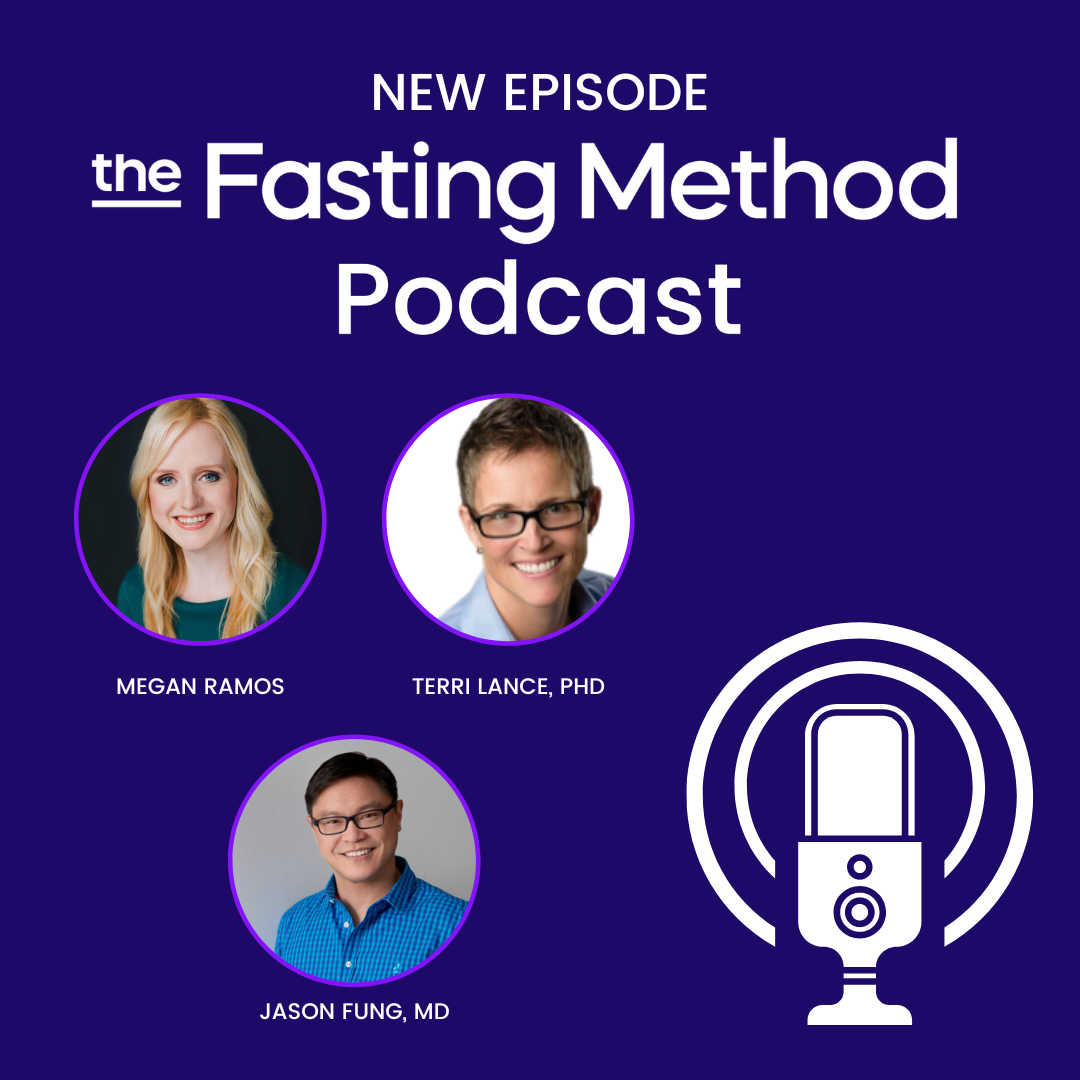
Fasting Q&A with Dr Jason Fung: Stomach Rumbles, ‘Anchoring’ Weight, Stress and Insulin, Body Set Weight, and More.
In this Fasting Q&A episode, hosted by Coach Lisa Chance, Dr. Jason Fung answers questions from the TFM Community:
If the stomach rumbles about an hour after having a black coffee, does this mean that the coffee raised insulin? [01:43]
Is insulin released only when the food is in the mouth? It feels like when a big, heavy meal is in the stomach for hours I could still add a supplement or snack to it and it wouldn’t make a difference, but would there be an additional insulin release? [02:54]
I have read that it is recommended to ‘anchor’ your weight after a 10% reduction in BF%. Can you say a bit more about this? I presume you would ‘anchor' by scaling back on fasting, and adjusting frequency and intensity in response to any changes in BF% so as to keep it stable. But what happens if you go all the way in one go? Do you need to ‘anchor' for longer at the lower BF% in order for it to become your new set weight or does the research say it’s not possible to reset it that low if you didn’t pause along the way? [03:35]
Is it true that a longer fast (or intense exercise) can stress your body, causing insulin to go up, and, therefore, might even be counterproductive? [14:08]
One of the biggest effects of blood glucose and insulin spikes is the damage to small blood vessels. These spikes damage the organs that predominantly rely on small vasculature like kidneys, eyes, nerves in fingers and toes, leading to complications like diabetic kidney failure, macular degeneration, and neuropathy. Hyperinsulinemia is really a microvascular disease. Could you please share how you explain this process to non-medical folks? I fail to explain to my family members in layperson terms exactly what it is about the spikes of BG and insulin that damages the small blood vessels. [16:24]
In The Obesity Code, you wrote about a study where they overfed people to get them to gain weight. The study showed that they had a hard time putting weight on because their bodies knew to burn it off. So my question is, if our bodies experience this effect as per the study, what signs would there be (such as raised temperature and/or heart rate) to get our body to burn the extra calories consumed? [22:57]
Please note that you need to be a member of the TFM Community to submit questions to the Q&A webinars with Dr. Fung but you can submit questions to our regular Q&A episodes here: https://bit.ly/TFMPodcastQs
Submit Questions Here: https://bit.ly/TFMPodcastQs
Learn More About Our Community: https://www.thefastingmethod.com
Join our FREE Facebook Group: https://bit.ly/TFMNetwork
Watch Us On YouTube: https://bit.ly/TFMYouTube
Follow Us on Instagram: @fastingmethod
